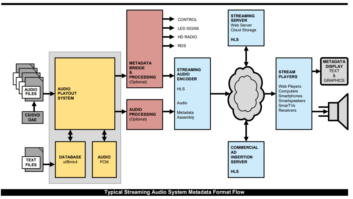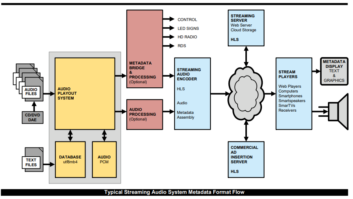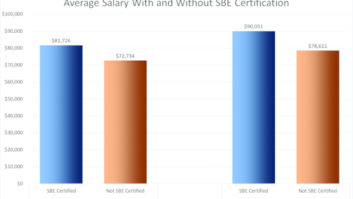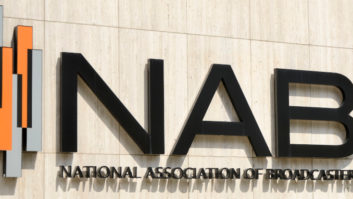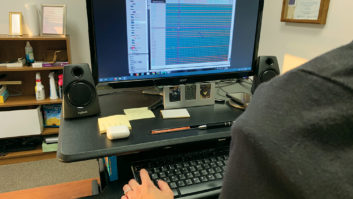SBE is Outgoing President Warns That Board Expenses Are Hurting Radio Engineersí Participation
This is probably my last opportunity to write for Radio World as the president of the Society of Broadcast Engineers. I want to take this opportunity to discuss a serious issue, but first I need to say some serious “thank yous.”
My greatest thanks go to my fellow society members for allowing me to represent you for the past two years. I am still amazed by the thoughtful, dedicated and devoted men and women who make up broadcast engineering. Serving as your president has given me an even deeper appreciation of our shared profession.
I would also like to thank Paul McLane and the entire Radio World family. Your long-standing support of the society and the profession are invaluable and deeply appreciated.
My final thanks go to the Public Broadcasting Service. Like the employers of most SBE officers, they have allowed me great flexibility in my schedule and paid for a lot of travel and other expenses so I could conduct the societyís business.
Without our employersí support, most of the societyís officers would not be able to serve.
Equal representation
This brings me to the serious issue.
As I was preparing this article, I received a disturbing e-mail from a board member. This particular person is a prominent radio engineer working for a large company in a major market. He has provided the society with excellent leadership at both the board level and industry committee level for some time.
Recognizing his value, the SBE nominations committee had selected him as a candidate for a key officer position in this yearís elections. His message indicated that, after much soul searching, he had decided to ask us to take his name off of the ballot.
The reason for his decision is the cause of my concern.
The company for which this board member works seems typical of radio today. It has changed hands several times in the past five years and has gone through a series of reorganizations and policy changes.
During this process, it quit paying expenses for professional activities such as SBE board service. Right now this individual is paying those costs out of his own pocket, but with childrenís college tuition and other expenses, he just canít keep meeting those costs personally.
This is really a waste. The society needs his services and he is willing to devote the time, but our by-laws specifically forbid paying any expenses for routine board or officer activities.
TV and related industries are changing as well, but so far the squeeze isnít as severe. The result is an unintentional but severe bias at the top in the society.
The nominations committee works diligently to recruit a balance of qualified people from all areas of our profession, but practicality makes it tough. At this point, it is much easier to find qualified and willing board member and officer candidates from sectors other than radio.
Iím not implying that there is anything wrong with the present board, but it is simply a matter of awareness and perspective. No matter how well-intentioned you may be, if you donít deal with the issues daily, it is difficult to understand fully how to adequately and fairly support the working engineer who does.
Careful steps
The e-mail was a painful reminder of this situation. Thereís a part of me that wants to advocate radical and rapid change in response. Thatís probably not a good idea.
Too often in the past, well-intentioned efforts to achieve change quickly have plunged the society into chaos. We need to do this deliberately, carefully and permanently.
A first step should be a minor change in the SBE by-laws. At this point, the society cannot help board members with routine expenses without violating the by-laws. Before crafting any solution, we need to remove that restriction.
I would urge the by-laws committee to propose a change and the membership to support it.
The original restriction was imposed to avoid creating a “privileged class” of officers who enjoyed lavish meals and travels to meetings in exotic locations under the guise of conducting society business.
While this may have been true of other industry groups in the past, I think the SBE board members have demonstrated remarkable fiscal responsibility in their activities. I donít think liberalizing the by-laws will suddenly engender recklessness and abandon.
Once the by-laws are changed, we can carefully evaluate alternative strategies to deal with the board expense problem.
I am far from certain about the best approach. Several people have suggested that we approach dominant companies in the industry and solicit money to support a governance fund for the society. This would eliminate the need for individuals to pester their immediate superiors for money but still put the burden of support most directly on companies that benefit from society activities.
This sounds good on the surface and should be considered, but I would leave it to others to determine the impact such a program might have on the independence of the society.
Another alternative would be chapter support for board-member activities. This has been used before.
In several instances, chapters have been concerned about adequate representation. They recruited qualified board candidates and agreed to underwrite some or all of their expenses if they were elected. Because many chapters are incorporated as separate entities, the lawyers felt that such arrangements were acceptable because no direct national money was going to the board members.
A third option could be a dues increase. Through extremely careful budget management and aggressive partnering, the SBE has operated in the black for more than 10 years without a dues increase. This canít go on forever, and ensuring fair representation of a major segment of the membership on the board may be an important enough issue to move us to action.
At the risk of slipping into sloganism, I would suggest that “Taxation for Representation” might be an alternative worth exploring.
Act now
No matter how we pay for it, I think leveling the playing field for board- and executive-level participation is important. Every industry segment and employment level must be represented for our society to be effective.
I hope my radio colleagues share this view. Your influence is fading. I hope you will join me in urging my successors to take action to reverse this disturbing trend.
While it caused me concern, the e-mail did include a positive section. The writer indicated that leaving national activities would allow him to become more active in his local chapter. I know his efforts will make a major difference for this chapter. He even plans to try to develop a new regional convention.
I hope all society members will take a minute to reflect on their own local chapters. Your participation at the chapter level provides powerful support for our national efforts and brings the benefits of society membership directly home to you.
I look forward to seeing you at a chapter meeting real soon now, and thank you again for your kindness and support.
RW welcomes other points of view. Write to[email protected] with the subject:Who Pays, and Who Benefits?





